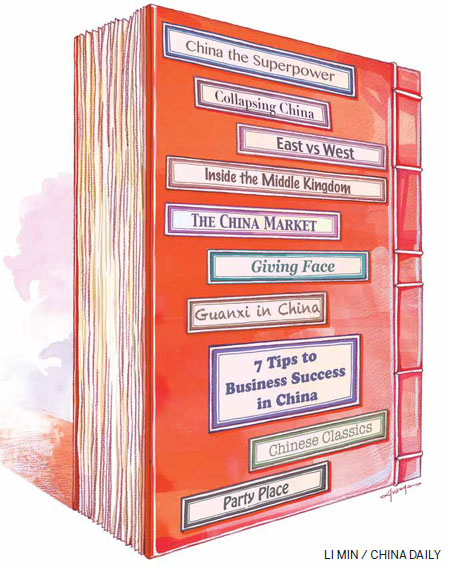Subject of interest
Updated: 2012-05-04 08:47
By David Bartram (China Daily)
|
|||||||||||

Books on China have never been more popular, but are they teaching us anything?
Few books have polarized opinion in recent years as much as When China Rules the World, but when it was published in 2009, author Martin Jacques was thinking less about kickstarting an international debate than he was simply relieved to have completed a 10-year project marred by personal tragedy.
|
||||
"I'd moved to Hong Kong in 1998 with my wife Hari and our 9-week-old son Ravi. We were going to be there for three years and I had ambitious plans for the book as well as a television series lined up," Jacques says.
"But after we'd been there for 14 months, my wife died in terrible circumstances and the book went out of my mind. I was just struggling to survive and I didn't touch the book for five years. I wasn't sure I'd ever be capable of writing it, but it must have somehow stayed in the back of my mind because by 2005 I started to work on it again."
What happened next caught just about everyone off guard, not least Jacques himself. Despite a limited initial run, the book soon became one of the most talked about non-fiction titles of the year.
"I was quite ambushed by the reception the book got," Jacques says. "I remember being told that only 5,000 copies would be printed initially and my heart sank. I was thinking, all that work and hardly anyone is even going to read it.
"But then very quickly things started to change. It was getting extensively reviewed and on the day of publication my editor wrote to me saying that they would be reprinting. By the next Monday they were reprinting again."
When China Rules the World went on to become an international publishing sensation, selling over a quarter of a million copies and being translated into 11 languages. It also proved the culmination of a decade-long shift for China titles from generally academic fields into the mainstream.
But while the reception for Jacques' book was broadly positive, it was not unanimous. Commentator Will Hutton, reviewing it for The Guardian, opened his review with the line: "The first problem with this book is the title."
Yet Jacques remains undeterred by any criticism.
"The book was bound to be controversial as it goes against the conventional wisdom in the West. Inevitably a lot of people are going to come in collision with the book as I'm challenging their mindset. But I want there to be an argument, not for the sake of it, but to try to shift the way people look at China."
Books on China have been growing in popularity since the early 2000s. One of the most famous, or infamous, Gordon Chang's 2001 title The Coming Collapse of China, sold well despite it soon becoming clear that the book's central assertion was deeply flawed.
Chang has remained bullish, republishing the book earlier this year arguing that his initial claim was not incorrect, but that he had the timing slightly wrong. He declined to comment for this article.
There is a sense that such "all or nothing" claims about China are often the result of pressure from publishers to produce provocative titles that will sell. There is a danger that this process might skew the debate.
"In general, I think that too much of the writing about China is shaped by what have been termed Sinomania and Sinophobia," says Jonathan Fenby, an author and journalist who has written a number of books on China.
"On the one hand we have writers predicting the coming collapse of China and on the other foreseeing the inevitability of China ruling the world. Such predictions are beguiling, especially if they are pitched in headline-grabbing terms."
Today's Top News
Rescuers race against time for quake victims
Telecom workers restore links
Coal mine blast kills 18 in Jilin
Intl scholarship puts China on the map
More bird flu patients discharged
Gold loses sheen, but still a safe bet
US 'turns blind eye to human rights'
Telecom workers restore links
Hot Topics
Lunar probe , China growth forecasts, Emission rules get tougher, China seen through 'colored lens', International board,
Editor's Picks

|

|

|

|

|

|









